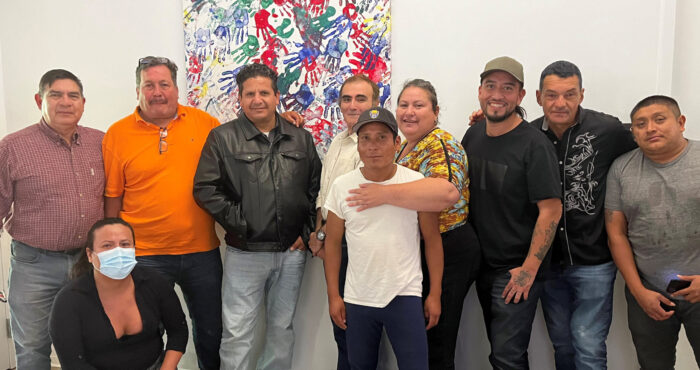Advancing policies to solve PrEP access issues

Last year, our PrEP team began to notice an issue that was preventing timely access to PrEP and PEP for some clients. A few insurance companies were requiring prior authorizations for PrEP and PEP, resulting in significant delays for clients in getting their prescriptions. Frequently, PrEP navigators had insurance claims outright denied for unclear reasons.
“There was a lot of human error involved in submitting prior authorizations. We would get rejections for forms that we had previously submitted correctly because agents in prior authorization departments didn’t know how to read the medical documents or test results we were providing,” said Felipe Flores, associate director of PrEP and HIV+ services. “These requirements simply weren’t working for our clients who have busy lives and schedules, and fighting these rejections were requiring a lot of time and resources for my team.”
In one instance, the team responded to a PEP prior authorization requirement that was going to take three days to process—beyond the critical window when PEP needs to be started after a possible HIV exposure. Although the team was able to provide the client with a starter pack of medications to begin PEP while the insurance company negotiated the claim, the challenge presented an unnecessary barrier that could have resulted in an avoidable seroconversion.
Realizing these prior authorization requirements would continue to affect people coming to our clinic, and people seeking PrEP and PEP elsewhere in the state without access to experienced PrEP benefits navigators, our policy team explored options to eliminate these unnecessary barriers.
“We talked to the Department of Managed Health Care to see if these prior authorizations were compliant, but found out the insurance companies were operating within the confines of the existing law,” said Courtney Mulhern-Pearson, senior director of policy and strategy. “We realized that we would need to change the law to address this issue, which is when we approached Senator Scott Wiener to author a prior authorization bill.”
For a year, Mulhern-Pearson and other members of our policy team collaborated with California State Senator Scott Wiener, who represents San Francisco, to craft the content of the bill, met with stakeholders and legislators to negotiate amendments, and lobbied for the bill as it made its way through the state legislature to the Governor’s desk.
This October, California passed Senate Bill 159, which authorizes pharmacists to administer PrEP and PEP and also removes insurance preauthorization requirements for PrEP and PEP.
“Senator Wiener decided to combine these issues into one comprehensive bill to address barriers to expanding access to PrEP and PEP,” said Mulhern-Pearson. “This is a first-of-its-kind bill, and is really exciting because we have the opportunity to streamline the process of obtaining a PrEP or PEP prescription and finally address the significant barriers to care that were being caused by the burdensome prior authorization requirements insurance plans were using.”
It’s expected that PrEP and PEP will be available in California pharmacies without a prescription beginning in the summer of 2020.
“I’m hugely excited about where things are going with this,” said Carolyn Chu, MD, MSc, clinical director of the clinician consultation center at UCSF (PEP line and PrEP line). “We don’t need to be permanently locked into this very traditional, heavily medicalized model of [PrEP and PEP] care. There’s already precedent set in our state for having pharmacists play a larger role in helping people access Naloxone, some travel vaccines, and smoking cessation products. So there has been—at least on the legislative end—a foundation to build off for interventions that we know ought to be more widely available.”
“Pharmacists who would like to furnish PrEP or PEP must complete a training program that is approved by the California Board of Pharmacy,” said Jen Cocohoba, PharmD, professor of clinical pharmacy at UCSF School of Pharmacy. “My understanding is that this is a training program that is still in development, so this is one step that must be completed before the practice can be rolled out.”
“PEP and PrEP are two important tools that will help us decrease or eliminate HIV transmission, but there are disparities in terms of who is using them,” said Mulhern-Pearson. “That’s why it’s important for us to keep working on creative solutions to make PrEP and PEP accessible. Providing PrEP and PEP in pharmacies will help to de-stigmatize these medications, and will help us reach people who may not be comfortable going to traditional medical offices or clinics.”










